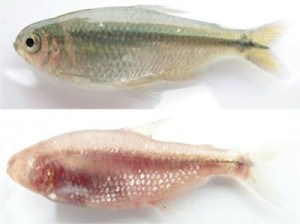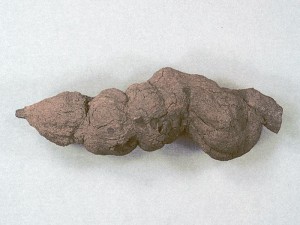Why I think what I do about the Creation/Evolution Debate
If all you read is this first paragraph, here’s what I want to say. When I look at the creation/evolution debate at a mature level, creation is a much more rational explanation of the scientific evidence than evolution.
Want to read on?
Years ago, I thought evolution was a scientific fact. After all, this is what most people were saying it was and who was I to disagree? For 37 years I accepted it is truth, and to be honest ridiculed anyone who thought otherwise, particular if they were Christians. I didn’t know that many of our eminent founding scientists were creationists. Who would have thought it?
Then I became a Christian, and decided to have a critical look at the evidence not expecting to find what I did. I have to admit, I am not a particularly good Christian and spend more time reading books on science and philosophy than I do the Bible.
You see I dont try and fit the evidence into the bible, because really, I dont know it well enough for a start. I try to look at the evidence and make the best inference: evolved or created?
To Start..
We all have a starting point that we have to accept by faith, whether this is the creation of life through some intelligent cause or the spontaneous natural creation of life through natural processes. We weren’t there so how can we be so sure of one thing or the other?
Accepting either could be true, we are then left with a very simple choice: when we interpret the evidence through the lens of either view, which is the best inference? This is where the debate really lies and at the heart of atheists rejection of creation is the simple rejection of the creator that may lie behind creation.
Let me say that at this stage, I love informed, passionate people on either side. I am not so keen on the horrible insulting mudslinging that often plagues this interesting debate.
So when I look at the evidence itself, why do I think creation is a better explanation? Simply put, it is a more rational and consistent explanation of the scientific evidence we can observe today.
Here’s an example. If life was created good supported by the DNA coding and machinery for it to be so, then we would expect that DNA over time to break down according to basic natural laws. Mutations create DNA errors, therefore, we would expect to see more and more over time as new mutations are added to those already inherited through our parents. This is exactly what we see today. Information content is reducing. Natural selection culls traits of no use, it never introduces new information to code for new traits. Genetic insertion has a catastrophic impact on the organism. Evolution on the other hand (that is the evolution that turns simple cells to you and me) requires mutation and selection to add new information. So what we see through observation today is the opposite of what is required for simple cells to turn into you and me. What’s the best inference?
A tale of two Fish.

This is a cavefish. Rather, two cavefish. One is normal. The other is blind. It can happen in a generation so we can see it today. What’s more, a blind interbred with a sighted one, hey presto, produces sighted offspring in a generation. Evolution in action? Not really. Just an example of adapting to a particular envionment.
Think about this. If we captured these in the fossil record, most would hail this as evolution in action. A fish tippy toeing it’s evolutionary way to sight. Depending on where we place the fish in the fossil record would alter how we interpret the fossils. This is the case with most interpretations of evolutionary evidence. If for example, the fish are in the wrong order, something new and ad-hoc will be introduced to explain the obvious away to ensure the data is interpreted correctly (e.g. to support evolution).
Time Gentleman Please
At this point, many evolutionists will simply invoke time. There’s not enough time in our own observations to see microbe to man happening. However, what we do see in experiments within the timeframe of visible observation is the opposite of what evolutionists would hope for. Given this fact is easily observable to any scientist, often evidence from other disciplines is intepreted in a particular way to give credibility to the evolutionary belief.
An example is the aging issue, whether this is the cosmos of fossil remains we find. They have to be old in order to fit the evolutionary view. Natural processes have to work slowly to support the evolutionary view. Yet again, when we take as look at the evidence, it seems more reasonable to interpret what we see not as slow, gradual process but as a result of something that happened very quickly. Yet this inference challenges current evolutionary beliefs, even though it is a more reasonable explanation of what we observe today.
Poo

Here’s an example. If you have a fossiled piece of tutrle poo, a coprolite, is this more likely to be a result of a rapid or gradual process? Poo doesn’t last long before it is broken down (it lasts too long if you ask me when a dog poos in my front garden). So the best inference based on what we observe today is the coprolite is more likely to be a result of a rapid process, else it is unlikely to have been fossilised at all.
At this point, it is important to realise that even though something may have happened rapidly, this is not an evidence of age. It may have happened millions of years ago, but simply remained that way ever since it was fossilised. This would be the best inference if for example, we found fossilised soft bodies, multiple dinosaur fossils in a particular formation, or fossils of things that do not normally co-exist. This is what we do observe in the fossil record by the way.
So one thing on its own doesn’t give you an idea of age, you need to refer to other things to determine this. This could be radiometric dating, or geology, or any other science. In any of these, the worldview determines the interpretation, along with often untestable or falsifiable assumptions. So we quickly see that most ‘science’ that supports evolution, isn’t science at all, as none of it is testable, repeatable or observable in the present.
